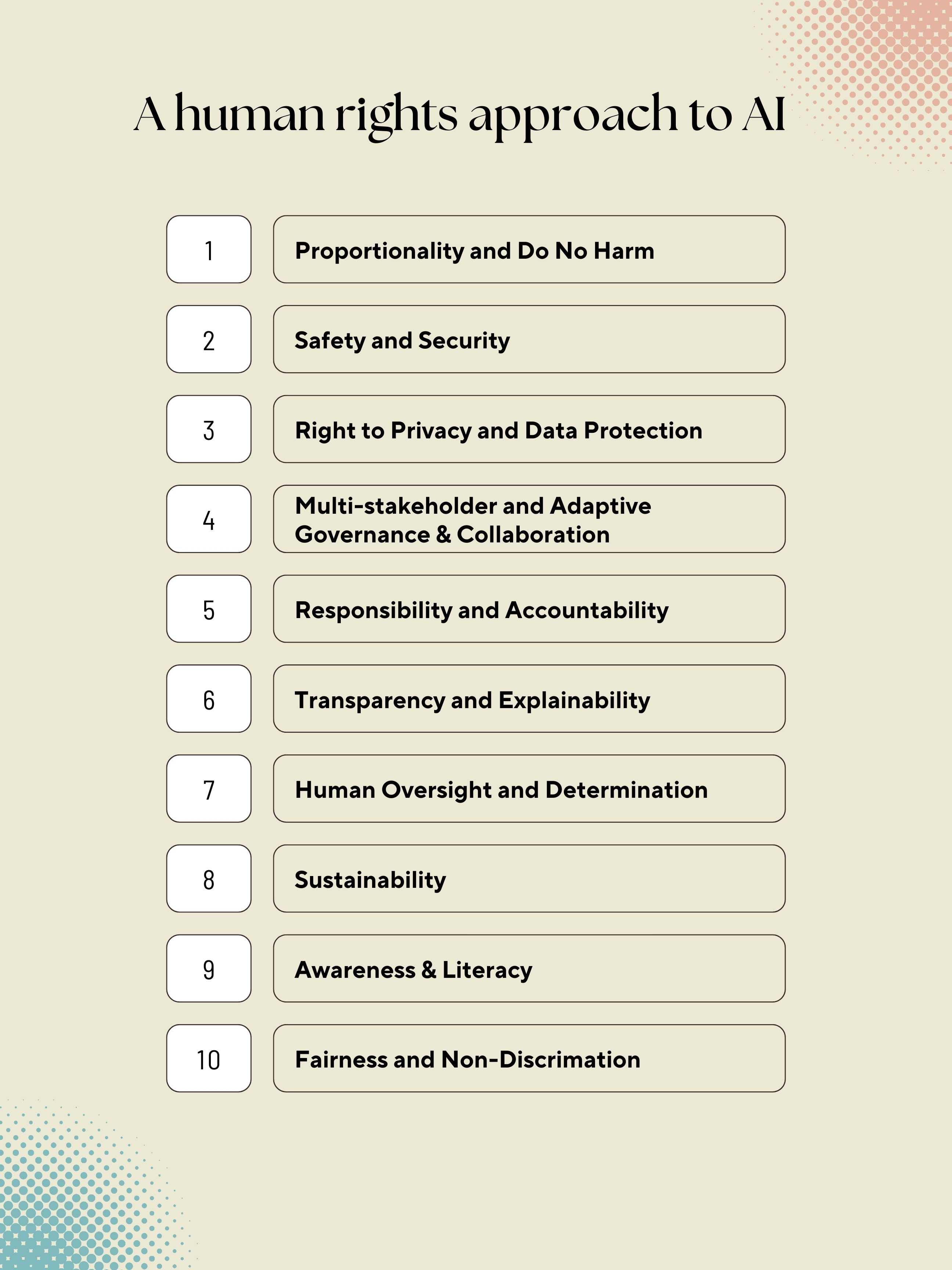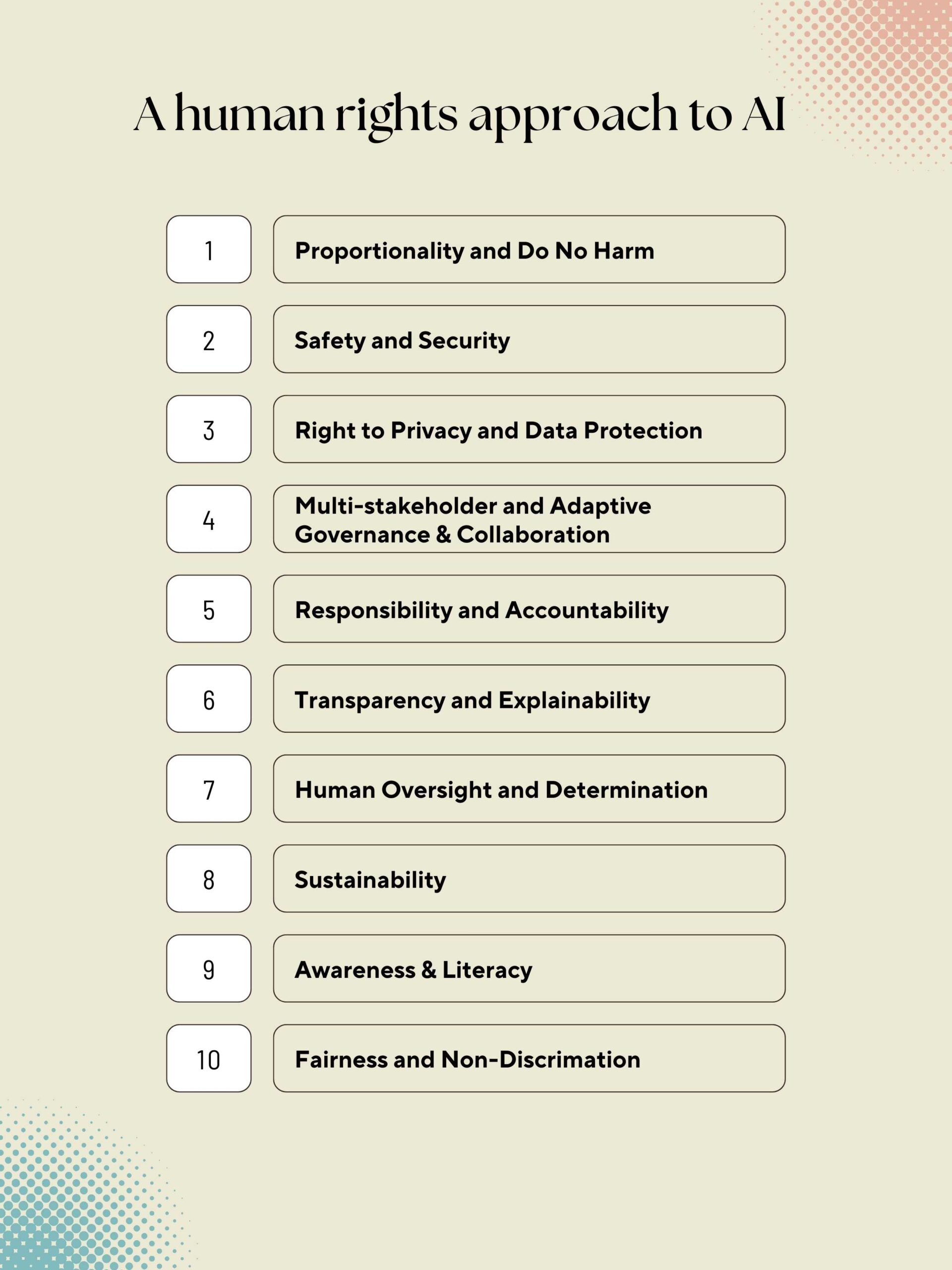Horizon, the faulty accounting software at the heart of the Post Office scandal, was not just a technological hiccup; it was a systemic breakdown of ethical considerations and responsible governance. Hundreds of postmasters were wrongly accused of theft and fraud. Lives were upended, careers crumbled. The Post Office, instead of owning up to their mistakes and rectifying the situation, chose a path of secrecy and confusion. Non-disclosure agreements became their weapon of choice, silencing victims and burying the truth under layers of bureaucratic apathy.
AI’s potential to revolutionise care is undeniable. But with this immense power comes immense responsibility. The potential for AI to perpetuate bias, discrimination, and even harm is real. Hence, ethical considerations transcend mere responsibility; they become unwavering commitment to the well-being, safety, and privacy of those who interact with and depend on these technologies.
The Imperative of Ethics: Enter Responsible AI
Responsible AI isn’t just about cutting-edge algorithms; it’s about building trust. This means prioritising transparency, transparency on how AI works and where data comes from. Fairness is paramount, ensuring AI doesn’t perpetuate biases or inequalities. We must also prioritise accountability, holding developers and users responsible for AI’s actions. Ultimately, human oversight remains vital, safeguarding against unintended consequences.
Human Cost & Algorithmic Failure: Understanding Risks
Let’s step into Mrs. Miggins’ shoes, to grasp the two main risks involved and what steps care providers can take to mitigate those.
Ethical risks relate to the potential for AI to violate fundamental human rights and values. This can include issues like bias, discrimination, privacy violations, and lack of accountability. While AI monitoring should respect Mrs Miggins’ privacy, avoiding intrusive practices; overreliance on AI without human oversight can lead to decisions that disregard Mrs. Miggins’ unique needs and preferences.
Ethical Risk mitigation strategies for privacy invasion:
- Anonymisation: Protect residents’ identities by using techniques that remove personal information
- Informed Consent: Build trust through open communication and obtaining consent for AI monitoring
- Regular Audits: Conduct frequent assessments to ensure ongoing adherence to privacy standards
Efficacy risks, on the other hand, focus on the ability of AI to perform its intended function effectively. This includes considerations like accuracy, reliability, explain-ability, and robustness. Inaccurate AI predictions may compromise Mrs. Miggins’ health if she receives unreliable care.
Efficacy Risk mitigation strategies for unreliable information:
- Rigorous Testing: Identify and fix inaccuracies by thoroughly testing AI systems during development
- Real-time Feedback: Implement mechanisms for continuous monitoring and quick adjustments
- Human-in-the-Loop: Validate AI predictions with human expertise for added reliability
- Regular Updates: Keep AI systems current with the latest sectorial knowledge for sustained accuracy
Leading the Way in Ethical AI: A Five-Step Framework for Innovative Care Providers:
Step 1: Setting the Stage:
Imagine the ecosystem of a care provision. Like throwing a pebble into a pond, any AI intervention will send ripples outward, impacting residents, families, staff, and even community at large. This step demands proper impact analysis, dissecting the potential consequences for each stakeholder. Cultivate a culture of ethical responsibility within your care organisation, raising awareness and building consensus on the importance of ethical AI in care.
Step 2: Building a Framework:
Efficacy is the lifeblood of AI, but without measurement, it is a blind swimmer. This step necessitates quantification of risks. We must analyse the AI’s accuracy, reliability, and explain-ability. Are there hidden biases in its data? Will its outputs be fair and beneficial for all? Only with hard numbers can we ensure AI navigates ethical responsibility properly. Establish clear ethical guidelines and policies for AI development and use, ensuring compliance with existing regulations and best practices.
Step3: Smart Implementation:
Develop documents for transparency, data sources, algorithms, and potential biases. explaining the context in which the AI models are intended to be used, details of the performance evaluation procedures and other relevant information.
Regularly evaluate the efficacy and ethics of each AI use case, including accuracy, reliability, and potential for harm.
Step4: Human-in-the-Loop Control:
AI isn’t a monolith. Identify decision-makers, overseers, and safety nets. Remember, humans, not algorithms, should hold the helm and must ultimately bear the responsibility for AI’s actions. This ensures clear accountability and prevents AI from becoming a runaway force endangering well-being of the people in care.
Step5: Continuous Adaptation:
AI is a living thing, forever adapting. Monitor its performance, update its algorithms, constantly reassess its impact on care and be ready to adapt. Based on evaluations, make informed decisions to approve, revise, or reject the AI application, prioritising ethical considerations and human well-being.
Remember, the line between ethical and efficacious can blur. Only by staying alert and adaptable can we ensure AI remains a force for good, steering society towards a brighter future.
Care providers face unique challenges and ethical considerations when implementing AI solutions. At InvictIQ, we understand these challenges and aim to help care businesses leverage the benefits of AI ethically and responsibly.
InvictIQ’s Solutions for Responsible AI in Care:
• Transparency and Explain-ability: InvictIQ’s AI models are designed to be transparent and easily interpretable, allowing care providers to understand how the AI arrives at its conclusions.
• Bias Detection and Mitigation: InvictIQ actively identifies and mitigates potential biases in its AI models to ensure fair and equitable outcomes for all residents and service users.
• Human Oversight and Control: InvictIQ’s solutions prioritise human oversight and control, ensuring that AI recommendations are always subject to the judgment and expertise of care professionals.
• Data Security and Privacy: InvictIQ prioritises data security and privacy, adhering to the highest ethical standards in handling sensitive resident information.
Closing the AI Ethics Gap: A Collective Responsibility for Responsible AI
Care providers and suppliers in particular, have a crucial responsibility to ensure that AI is used ethically and responsibly, prioritising the well-being and dignity of residents and service users. By integrating responsible AI principles into every stage of development and implementation, we can ensure that AI serves as a force for good, fostering a future where technology enhances human life and not the other way around.
MORE ARTICLES
“In no other field is the ethical compass more relevant than in artificial intelligence”

Join the Journey:
As I embark on this captivating journey of exploration, I invite you to join me. We will delve into the fascinating intersection of technology and human caring, uncovering the potential of AI to revolutionise care. Together, let’s rewrite the narrative with the warmth of compassionate care amplified by data and technology.



